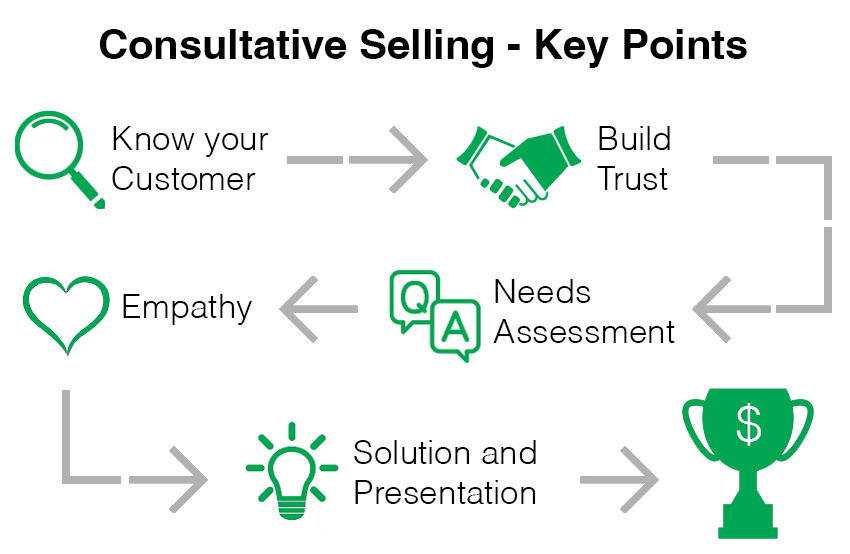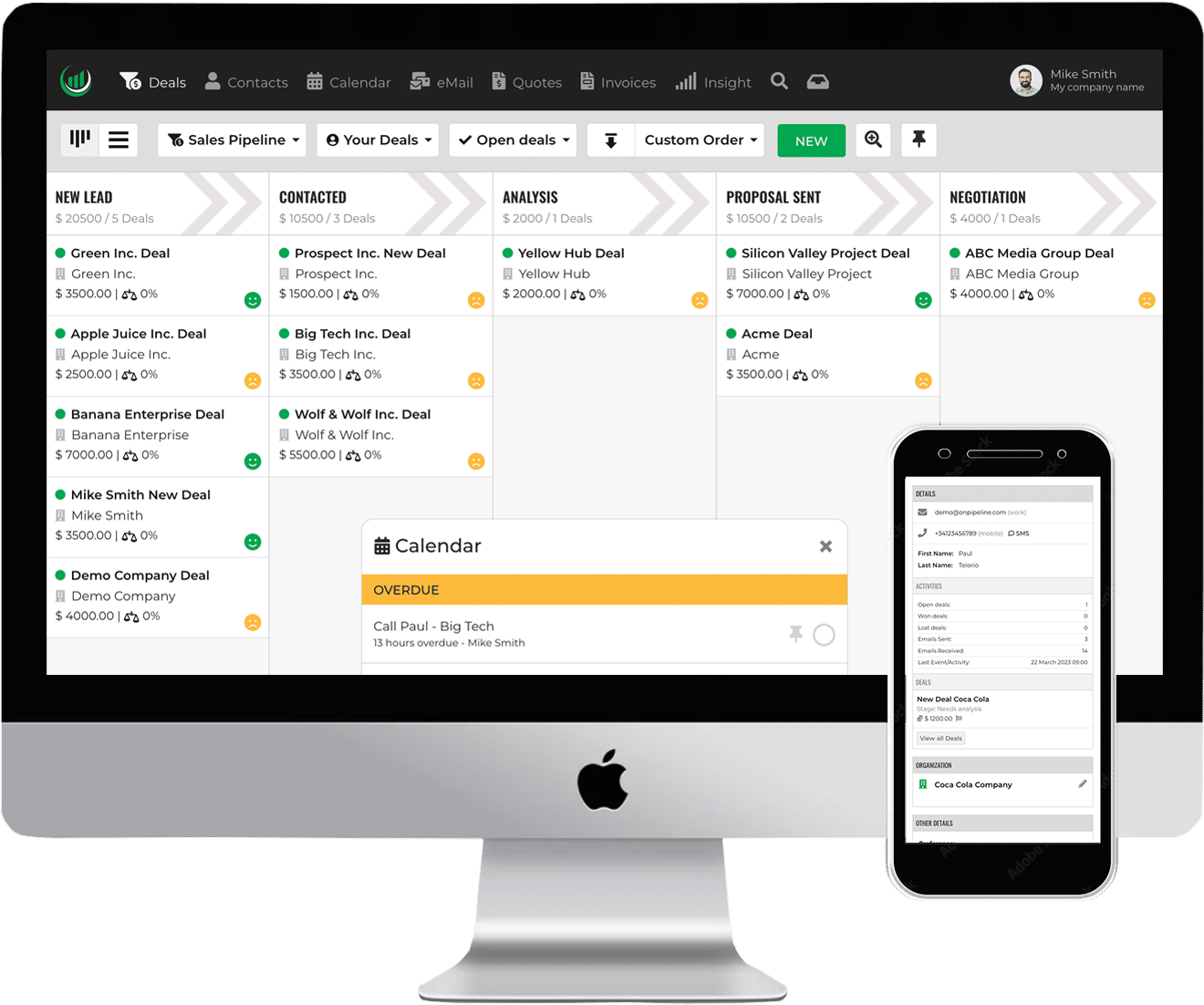Let’s explore the importance of Consultative Selling and see how it can improve sales.
What is Consultative Selling?
Consultative Selling is a sales approach where the salesperson acts as a consultant instead of a seller. Instead of selling directly, they focus on understanding what the customer wants and struggles with.
Consultative Selling Method
This selling method creates better connections, happier customers, and lasting business partnerships.
Research
Use the available resources to gather information about the customer’s business. Also, gather data on industry challenges and market changes. If they have interacted with your company before, analyze their previous purchases and feedback.
Building Trust
Have conversations that go beyond business to form a personal connection with others. Show genuine interest in their achievements. Consistency in communication and follow-through on promises are key to building trust.
Needs Assessment through Questioning
Create strategic questions that uncover both basic needs and deeper goals and obstacles. Encourage the customer to imagine their perfect solution. This can show what they really expect.
Active Listening and Empathy
Listen not only to what is being said but also to what is implied or left unsaid. Pay attention to non-verbal cues and tone. Confirm their concerns and show that you care about finding the right solution for them.
Solution and Presentation
Customize your sales presentation to address the customer’s worries. Use real-life examples and case studies, if possible. Prove the potential impact of your solution with data, testimonials, or predictive analytics.
Educating the Customer
Help the customer understand the big picture and how your solution fits in. Share insights and trends they might not know. Offer best practices and guidance that align with their business goals.
Objections and Concerns
Use a consultative approach to understand the root cause of objections. Sometimes, sales objections can reveal more customer needs or concerns. Make sure you have short, clear, true answers that fit the customer’s situation.
Collaborative Closing
Make the sale feel like a good next step for the customer, creating a win-win situation. Include the customer in making the final agreement and make sure to address all the needs.
Post-Sale and Relationship
Implement a structured follow-up plan that includes regular check-ins and support. Offer resources or training to ensure they use and get the most value from your product or service.
Psychology in Consultative Selling
Salespeople can use sales psychology to build strong customer relationships and meet sales goals.
Trust
To build trust in consultative selling, be honest and knowledgeable in how you communicate and act.
Salespeople build trust by offering solutions that meet the customer’s needs. It’s important to be dependable by keeping promises and delivering on commitments. Also, it’s important to be honest about problems and work together to solve them.
Buyer Motivation
To understand why buyers make decisions, we need to know their goals and emotions. People may want security and avoid taking risks, or they might want innovation and growth.
Salespeople can adapt their approach when they know what motivates the buyer. They can focus on what the buyer values most. Also, when we understand these motivations, we can address any objections or concerns that come up.
Empathy
In sales, empathy means more than understanding the customer’s needs. It means genuinely relating to their situation and challenges. The salesperson has to pay close attention to what the customer says, how they say it, and their body language.
Empathy is important in building a connection that goes beyond making a sale. It helps the customer feel valued and understood.
Influence
Consultative selling uses persuasion that is subtle and rooted in providing value. The goal is to propose solutions that align with what the customer wants and believes.
This method uses social proof, authority, and the liking principle. People are more likely to be influenced by those they like, respect, or view as similar to themselves.
In this case, effective persuasion isn’t about manipulating. It’s about using knowledge and expertise to help customers make beneficial decisions.
Benefits
Consultative selling has many benefits that can improve the sales process and outcomes.
Customer Relationships: Consultative selling builds stronger customer relationships by understanding needs and offering personalized solutions, fostering trust.
Customer Satisfaction: When sales focus on what the customer needs, they are more likely to be satisfied. Happy customers are more likely to keep buying from you and recommend your brand.
Competition: Consultative selling helps your product stand out in a busy market. It offers a great buying experience and valuable insights.
Pricing: Customers who see the value and relevance of a solution are less sensitive to price. The focus shifts from cost to value.
Customer Retention: Customers acquired through consultative selling are generally more loyal. Many customers see the salesperson as a partner, not just a vendor. This can improve retention rates.
Sales cycle: Consultative selling may seem slow, but it can actually speed up sales cycle by satisfying customers’ needs and worries.
Reputation: Sales professionals and their companies gain trust and expertise by providing consultative advice. This improves their reputation and authority in the market.




